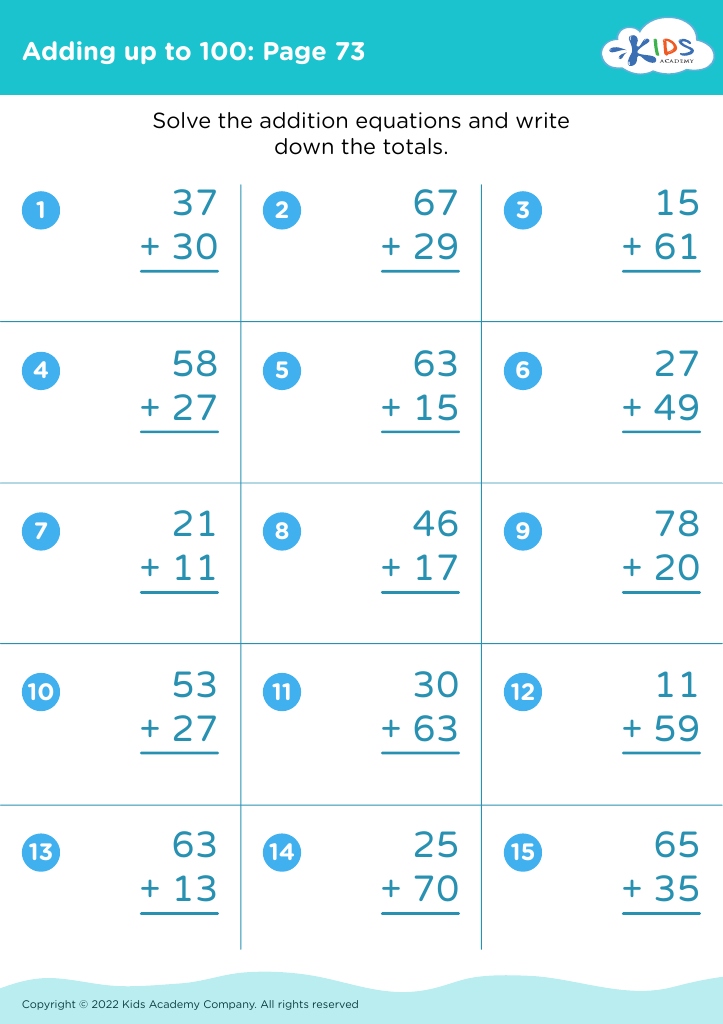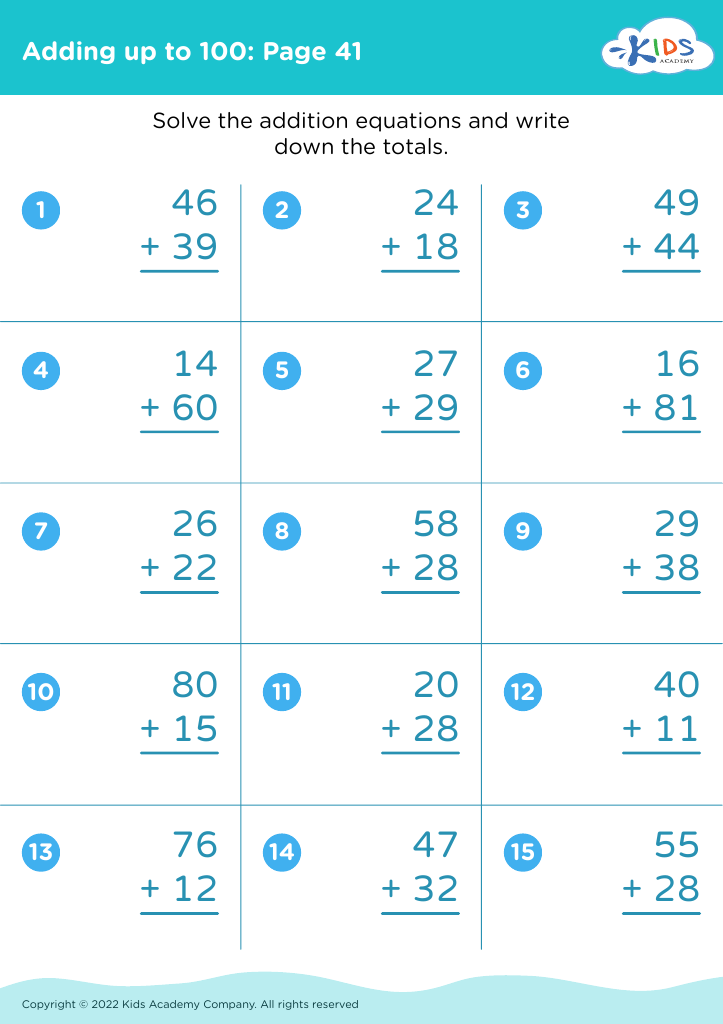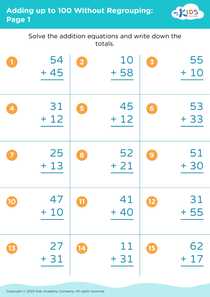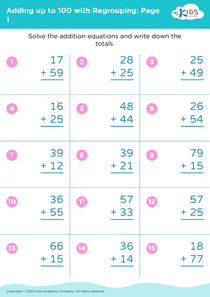Basic Math Skills Adding up to 100 Misc Worksheets for Ages 3-8
5 filtered results
-
From - To
Unlock the world of numbers with our "Basic Math Skills: Adding Up to 100" worksheets, specially designed for children ages 3-8! These engaging, printed resources introduce fundamental math concepts through fun and interactive activities that promote recognition of numbers, counting, and basic addition skills. With a variety of exercises tailored to different learning stages, these worksheets are perfect for boosting confidence in young learners while making math enjoyable. Help your child master essential skills to lay a strong academic foundation. Explore our collection today and watch them thrive as they build foundational math abilities that will last a lifetime!
Basic math skills, especially the ability to add up to 100, are fundamental for children ages 3-8 as they form the foundation for more advanced mathematical concepts. Early math proficiency enhances a child's problem-solving abilities, critical thinking, and cognitive development. Parents and teachers should care about cultivating these skills because they directly influence a child’s confidence in math, which can affect their overall attitude toward learning.
Introducing math through engaging activities allows children to grasp concepts in an enjoyable, interactive way. Simple activities, such as counting objects, using number lines, and applying games, foster an understanding of addition. Mastering these skills early ensures children not only comprehend basic arithmetic but also develop a mindset that celebrates learning and exploration.
Moreover, basic math skills are essential for daily life applications. Children use these skills in tasks like sharing snacks, shopping, or solving puzzles. By equipping children with the ability to add up to 100, parents and teachers set the groundwork for future academic success. Ultimately, embracing early math education cultivates lifelong learners who are prepared to tackle the complexities of math in school and beyond.















